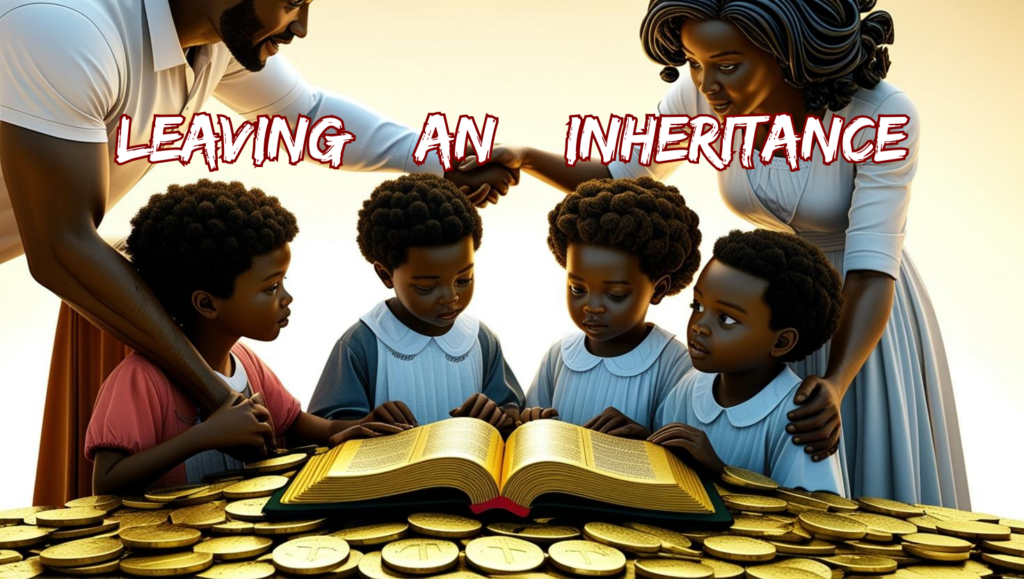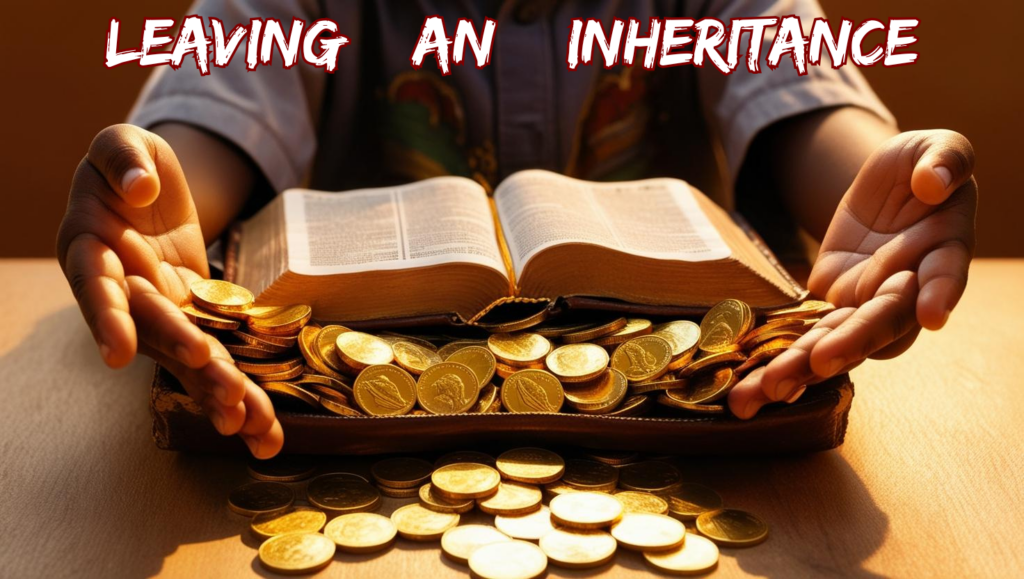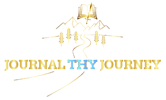Should We Focus on Leaving Material Wealth or an Inheritance of Torah?

Inheritance is a topic deeply rooted in Torah that guides Yahshar’el (Israelites) on how to pass down baraka (blessings) and responsibilities from one generation to the next. Many parents today wrestle with whether they should leave material wealth to their children or focus on their own well-being. Some see value in providing financial security for future generations, while others prioritize using their wealth during their lifetime for personal fulfillment or security. Nevertheless, a more significant question remains—should the primary inheritance be material, or should it be the eternal wisdom and knowledge of Torah? The scriptures provide clear guidance on this matter, urging us to seek wisdom in managing both our possessions and the Faith legacy we leave behind.
𐤉𐤄𐤅𐤄 (The Name of Our Creator) YAHUAH
𐤉𐤄𐤅𐤔𐤏 (The Name of the Son) Yahusha or Yahshua
The Vanity of Material Wealth
Yahusha’s parable in Luke 12:13-21 speaks directly to the fleeting nature of material wealth and the question: “Should We Focus on Leaving Material Wealth or an Inheritance of Torah?” Yahusha’s parable of the rich fool reveals the emptiness of wealth when it is not grounded in YAHUAH’s truth—Torah. It proves that no matter how abundant wealth is, it is temporary and ultimately meaningless and unable to sustain your soul. The rich man’s focus in the parable was on securing his earthly future. Yet, he failed to prepare an eternal inheritance. His mistake was not in having wealth but in believing that material abundance was the measure of a successful life.
The rich man’s thought process aligns with a shared mindset today—many parents strive and work tirelessly to accumulate wealth for themselves and leave behind financial security for their children, thinking wealth will sustain them. However, 𐤉𐤄𐤅𐤔𐤏 (Yahusha) warns that “a man’s life consistent not in the abundance of the things which he possesses” (Luke 12:15). In other words, a life centered on material gain is fleeting and ultimately worthless. Wealth and material things can be lost, misused, squandered, or become a stumbling block, as seen in real-life examples where children squander their inheritance. This mirrors what the rich fool experienced—his storehouses of goods perished along with him, leaving nothing of eternal value. So we see now that the real question is: What are we leaving behind that truly lasts?
Instead of focusing on storing earthly wealth, Yahusha’s teaching challenges us to invest in something more significant: an inheritance of Torah, wisdom, moral values, and righteousness. The true wealth that parents should pass down is a foundation in YAHUAH’s commandments, a love for His ways, and the understanding that true life is not measured by possessions but by obedience and faithfulness. Proverbs 13:22 tells us, “A good man leaves an inheritance to his children’s children, but the wealth of the sinner is stored up for the righteous.” This inheritance is not just about money—it is about living a set-apart life in the presence of your children, which will, in turn, deposit impactful lessons. These deposits will be carried and lived out by them and soon deposited into future generations. Deposits of set-apartness, Torah, wisdom, and righteousness. Deposits that endure beyond material possessions. “Train up a child in the way he should go, Even when he is old he turns not away from it.” (Proverbs 22:6)

The Illusion of Security in Wealth
The parable also reveals a deeper truth: Those who rely on material security are never truly secure. The rich man thought he had prepared for years of ease and security. Recall his words, “I will say to my soul, soul, you have many goods laid up for many years; take rest, eat, drink, and be glad.” In other words, he thought, Look at all I have gained; I’ve made it. Now, I can sit back and enjoy life with no worries. I don’t need 𐤉𐤄𐤅𐤄 (YAHUAH). His trust was in his wealth, not the One who gives life.
Yet that very night, his soul was required of him, proving that all his wealth could not secure his future. He had spent his life storing up possessions for himself but had neglected to store up the wisdom of Torah (Psalm 119:11), faith in YAHUAH (Matthew 6:20-21, Hebrews 11:7), and the fruit of the spirit (Galatians 5:22-23) that lead to eternal life—the only treasures that endure beyond this life.
In the same way, if we focus solely on leaving material wealth while failing to pass on Torah, faith, and obedience to YAHUAH, we would be failing our children and leaving them bankrupt, no matter how much we provide for them financially. What good is an inheritance without wisdom (Torah)? What good is wealth without understanding (Torah)?
Yahusha’s words do not teach us to neglect financial responsibility but rather challenge us to rethink our priorities and recognize that Torah is the only inheritance that leads to true life and security, both now and for eternity.
Leaving behind a legacy of Torah, righteousness, standards, and moral values is far more valuable than leaving behind material wealth alone. Wealth fades, but a foundation in YAHUAH’s Word endures for multiple generations. The real inheritance worth striving for is not silver and gold but truth, faith, righteousness, and obedience to 𐤉𐤄𐤅𐤄 (YAHUAH).
Solomon, who had immense wealth, understood this truth well. In Ecclesiastes 2:18-19, he laments: “Thus, I hated all my labor, that I labored under the sun, that I must leave it to the man who will be after me. And who knows if he will be wise or a fool?“ This mirrors the dilemma many parents face today. How can they ensure their children steward what they leave behind wisely?
Ecclesiastes 2:18-19 (HRB)
In this and all Food for Thoughts I recommend you read the Scripture(s) provided and the entire chapter they are from to obtain more insight.
Torah as the True Inheritance
While material wealth is uncertain, Torah is an eternal inheritance that never loses value. Deuteronomy 6:6-9 commands parents to diligently teach YAHUAH’s laws to their children. Torah is the most important inheritance, one that cannot be squandered or lost.
Consider Psalm 119:72, where David declares, “The law of Thy mouth is better unto me than thousands of gold and silver.” This perspective shifts our priorities—rather than leaving behind riches that can be wasted, ensuring that our children walk in YAHUAH’s ways is the greater investment.
Proverbs 13:22 also states, “A good man leaveth an inheritance to his children’s children.” Many interpret this as financial wealth, but in the greater context of Torah, the best inheritance is YAHUAH’s wisdom and righteousness, which will sustain generations.
Man shall not live by bread alone, but on every Word that proceeds out of the mouth of YAHUAH.
Matthew 4:4 (HRB)
Are we leaving behind only physical sustenance (bread) for our children, or are we ensuring they are spiritually nourished by the living Word of 𐤉𐤄𐤅𐤄 (YAHUAH)?
In this and all Food for Thoughts I recommend you read the Scripture(s) provided and the entire chapter they are from to obtain more insight.
YAHUAH’s Principles of Inheritance
Scripture does not forbid leaving material wealth to children, but it provides guidelines on how inheritance should be structured:
- Wealth Must Be Gained Righteously – “Treasures of wickedness profit nothing: but righteousness delivereth from death.” (Proverbs 10:2)
- Hard Work and Wisdom Matter More Than Wealth – “Do not labor to be rich, cease from your own understanding. Will your eyes fly on it? And it is not! For surely it makes wings for itself, it flies into the heavens like an eagle.” (Proverbs 23:4-5)
- A Foolish Heir Can Squander It All – “An inheritance may be gotten hastily at the beginning; but the end thereof shall not be blessed.” (Proverbs 20:21)
From these passages, it is clear that material inheritance should be given with wisdom, ensuring the next generation is equipped with the discipline and Torah knowledge to handle it properly.
Balancing Material Wealth and Torah Wisdom

It is not wrong to leave wealth, but it is foolish to leave it without the foundation of Torah. Without Torah, wealth becomes a stumbling block rather than a blessing. Yahshar’el (Israel) was given the land as an inheritance. Still, their ability to remain in it was conditional upon obedience to YAHUAH’s laws (Deuteronomy 28:1-14). This shows that an inheritance without Torah leads to destruction.
A practical approach would be:
- Prioritize teaching children Torah and righteous stewardship.
- If leaving wealth, ensure they understand its purpose and manage it wisely.
- Encourage them to see material baraka (blessings) as a tool to serve YAHUAH, not as a means to indulge in vanity.
- Teach yourself and your children economics and finance principles
Examples of Wealth Used Wisely and Wealth Squandered Foolishly
Tobit, Abraham, and Job left an inheritance of faith and obedience alongside their material wealth:
- Tobit – A Wealthy Man Who Practiced Righteousness and Charity
- Tobit 1:16-17 – Tobit’s righteous use of wealth
- Tobit 4:7-9 – Giving alms as an act of righteousness
- Tobit 4:19-21 – He taught his son Tobias that true wealth is found in righteousness and obedience rather than material riches
- Abraham – A Wealthy Man Who Walked in Faith and Righteousness
- Genesis 13:2 – Abraham’s wealth
- Genesis 18:19 – Abraham commanding his children in the ways of YAHUAH
- Genesis 17:7 – The everlasting covenant with Abraham and his descendants
- Job – A Righteous Man Who Understood Wealth as Temporary
- Job 1:1-3 – Job’s wealth and righteousness
- Job 1:21 – Job’s perspective on possessions and loss
- Job 42:10 – Job’s restoration after his trials
Rehoboam and the Prodigal Son received great wealth, but because they lacked wisdom, they lost everything:
- Rehoboam – A King Who Lost Everything Through Foolishness
- Rehoboam inherited wealth from Solomon, but his arrogance led to the division of the kingdom.
- 1 Kings 12:1-20 – Rehoboam’s foolish decision to increase burdens, leading to the division of the kingdom
- 2 Chronicles 10:1-19 – Parallel account of Rehoboam’s failure
- 2 Chronicles 12:1-9 – Rehoboam forsakes YAHUAH’s law, leading to the plundering of his wealth by Egypt
- The Prodigal Son – A Fool Who Squandered His Inheritance
- Luke 15:11-32 – The parable of the Prodigal Son, who squandered his inheritance on reckless living but later repented
10 Ways to Instill Torah Values in Your Children for a Lasting Inheritance:
- Daily Torah / Bible Study Together and Prayer: Set aside time daily to learn the Torah (Bible) as a family. Teach children the importance of tefillah (prayer) by praying with them and showing sincerity and connection in your own prayers.
- Memorize the Ten Commandments: Help your children learn and internalize the Ten Commandments (Exodus 20), emphasizing these foundational moral laws in their daily lives.
- Keep the Shabbat: Create a warm and joyful atmosphere for Shabbat with singing and Biblical lessons.
- Celebrate Biblical Feasts: Observe the biblical festivals commanded in the Torah, such as Passover, Shavuot, Sukkot, etc., explaining their significance directly from the Scriptures (Leviticus 23).
- Set an Example: Demonstrate love for 𐤉𐤄𐤅𐤄 (YAHUAH) through your own commitment to learning and ethical behavior. Children often emulate what they see.
- Teach the Shema: Emphasize the importance of the Shema (Deuteronomy 6:4-9) as a cornerstone of faith in one El, teaching children to recite and understand it.
- Practice Acts of Justice and Mercy: Encourage children to act justly, love mercy, and walk humbly with YAHUAH, reflecting key Torah values like caring for the vulnerable, as taught in the laws regarding widows, orphans, and strangers (Exodus 22:21-23).
- Teach Love for YAHUAH and Others: Instill the Torah’s command to love YAHUAH with all your heart, soul, and strength (Deuteronomy 6:5) and to love your neighbor as yourself (Leviticus 19:18).
- Instruct in Honesty and Integrity: Reinforce the importance of honesty, fair dealings, and integrity, as instructed in various Torah laws (Leviticus 19:11-13).
- Barak (bless) Your Children: Regularly bless your children with the priestly blessing from Numbers 6:24-26, asking for YAHUAH’s protection, grace, and peace over their lives.
Conclusion
Wealth fades, but Torah endures. While it is not wrong to leave material blessings, we must ask ourselves: Are we more concerned with passing down riches or righteousness? The answer determines whether our children will be truly rich in the things that matter. True security does not come from wealth but from obedience to YAHUAH’s Word and a legacy of righteousness. If we teach our children to “seek first the kingdom of 𐤉𐤄𐤅𐤄 (YAHUAH) and His righteousness” (Matthew 6:33), they will never lack what they need. Wealth may fade, but the inheritance of Torah is eternal. Lastly, “For what shall it profit a man if he gain the whole world, YET forfeit his soul?” (Mark 8:36).
By: David Edwards – HalleluYAH – Praise YAH – Praise 𐤉𐤄𐤅𐤄

